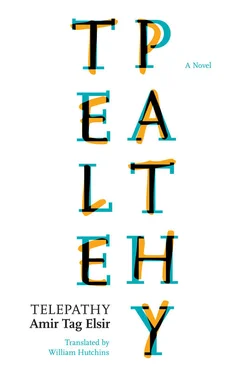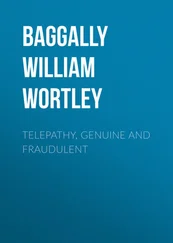I asked Dr Shakir, who had filled his fancy pipe with tobacco but not lit it, for his personal analysis of Nishan’s condition and whether he could be cured and become a judge as he hoped.
I was searching for a cigarette to light but found none in my pocket. The doctor set his pipe on the table and replied without any of the circumspection that is common in such situations, “It’s true that his schizophrenia is seasonal and intermittent and that when he takes Risperdal or Haloperidol regularly, all his symptoms disappear. But he’s unfit to be a judge, a court official, or even a humble court messenger.”
I felt that his opinion was a fatal blow to Nishan’s ambitions. The question of studying law was moot; it would be a long time before he became a normal human being and escaped from the death that awaited him at the end of my novel.
Once I returned to my house, I realized that I had been so caught up in the succession of untoward events that I hadn’t slept even momentarily for two days. I discovered that my mobile phone had been turned off most of the time since I left the home of Malikat al-Dar, my spiritual mother, accompanied by Nishan. I had only thought of turning it on during the minutes I spoke to Dr Shakir. I had turned it off again afterwards. There would certainly be dozens of calls and text messages; the callers and message-senders would have no idea what had happened to me or would happen.
A number of my friends would certainly have wondered what my secret reason was for turning off my phone. Some of them would surely have thought I had traveled again, after spending no more than a day in my homeland — without informing anyone. When I realized that some might have thought I had died, leaving my decomposing corpse in my house, I feared they might try to track me down in any manner they could think of. Just as I expected, when I turned on my phone, I found more than twenty messages. Most were from literary colleagues, and a number of these concerned the meeting they had had today at the working-class coffeehouse called al-Muzira, where we usually met. There was also a message from a journalist with a local newspaper, because I had scheduled a long interview with him for today about my detestable novel Hunger’s Hopes . I had stood him up. I doubted that I would keep any future appointments concerning that novel.
Najma had also texted me and wanted me to call her the moment I received her message. She had not, however, mentioned why she was contacting me. She had left that vague. The message that most gripped me, though, was from Linda, the daughter of Abd al-Qawi the Shadow — or the Shadow’s shadow, as I thought of her. Linda was a strange girl. I had never seen her in person, although I had been in her father’s residence dozens of times over a period of many years, even before she was born. I had never seen her at a lecture, cultural event, performance of one of her father’s plays, or in the market or a gloomy or brilliant alley anywhere in the world. When her name came up or she was mentioned in passing, the Shadow spoke of her proudly. He was the one who had given her my cell number which she had used to forge a strong telephone friendship with me. She shared with me opinions she had formed about works she read by many different writers and about all my works, which she said she enjoyed reading. She also discussed her own projects, which included a novel she called Two Wheels and Body Parts . She had been busy writing this for the past two years, and eventually it would be published. She had not told me what her novel was about, and I had never asked. I repeatedly invited her to the lectures I gave or to parties I was attending, but she had always declined without offering a convincing reason.
Her voice on the telephone was quite distinctive. It was the voice of a girl dreaming or discussing the remnants of a dream she was clinging to, hoping it wouldn’t escape. Some sentences were fresh and succulent. Half her words were clear and half somewhat hard to grasp. There was a delicate breathiness to her speech, and the hint of a laugh resonated through it from time to time.
In fact, Linda the Shadow had frequently whetted my imagination. I had attempted to picture her, based on what I knew about her. I had come up with a mental portrait of her as a girl of twenty or thereabouts, slender, with lively eyes, soft skin, and full, black hair trimmed with colorful ribbons. Her head swayed gently when she walked. I felt an odd curiosity to verify my portrait and said to the Shadow one evening when we sat in his house, trying to make my words seem innocent and unpremeditated, “Master, Linda is a cultural icon. She reads everything I write and offers me her frank opinion even about works by other authors. Why doesn’t she participate in our cultural activities or at least come occassionally to sit with us and join our conversations?’
I noticed his expression changed slightly, as if he had not liked what he heard or had indigestion. Then he replied, “What a lovely idea, Writer! Linda actually is a perceptive scholar. Her problem is that she cannot handle other people.”
Then his narrow eyes drilled into my face, and he added, “It should suffice for her to converse with you by phone. Isn’t that so? You know what she thinks of your works and of ones by other authors. I don’t think you want to marry her — isn’t that so?”
Thinking that I had caused trouble by asking about Linda, I moved our conversation in a direction that I knew the Shadow would relish enough to erase any problem or discomfort. I started discussing his play A Day in the Lantimaru Garden , which was a brilliant dramatic fantasy about an imaginary day spent with a dinosaur in a garden called Lantimaru, somewhere beyond the Earth’s sphere.
I mentioned that Linda’s message had attracted my feverish attention. Long and eloquently phrased, it discussed Hunger’s Hopes , which she had just finished reading, in a delightful fashion. She asked me about the ending: “Did you have to torture Nishan Hamza so excruciatingly? You could have aimed a treacherous bullet from an unknown assailant to strike him in the neck or run over him with a speeding car when he was crossing a street paved with death.”
In an essay that I wrote about anxious reading, published a year and a half ago in a newspaper, and posted on a website that I write for occasionally, I discussed the mechanics of producing a novel and of receiving it. I said a writer works with limits he determines with help from scrupulous observers. These include his talent, knowledge, and expertise, and an internal overseer that forms in his mind and that supersedes it. Thus he writes without looking at anything. If something happens and his thinking becomes confused or miscarries for some reason, this will never be a false step. He observes this miscarriage, and his vision extends forward, as he attempts to set his other thoughts on their own two feet. Consequently, Nishan Hamza, or NHN, must die of glandular cancer. Any other outcome a reader suggests would stem from temporary sympathy for the character, not from profound digging in the dirt of writing.
Linda was an excellent reader — there was no doubt about that. The overly literary sentences describing the hero’s death must have infuriated her. My ending was unexpected, because the invalid doesn’t die of complications of his schizophrenia. Her suggestion, however, was well off the mark.
I replied quickly to her message, realizing that she might be waiting up to receive my response. I clarified my thinking for her and directed her attention to my essay for further guidance.
Another text message really made me laugh. It was from Joseph Ifranji, who must have loaded his phone with credit when I gave him money. He had written in his idiosyncratic English: “My lover Daldona return back from the desert. She discovered the rented house and now with me in the bed.”
Читать дальше












